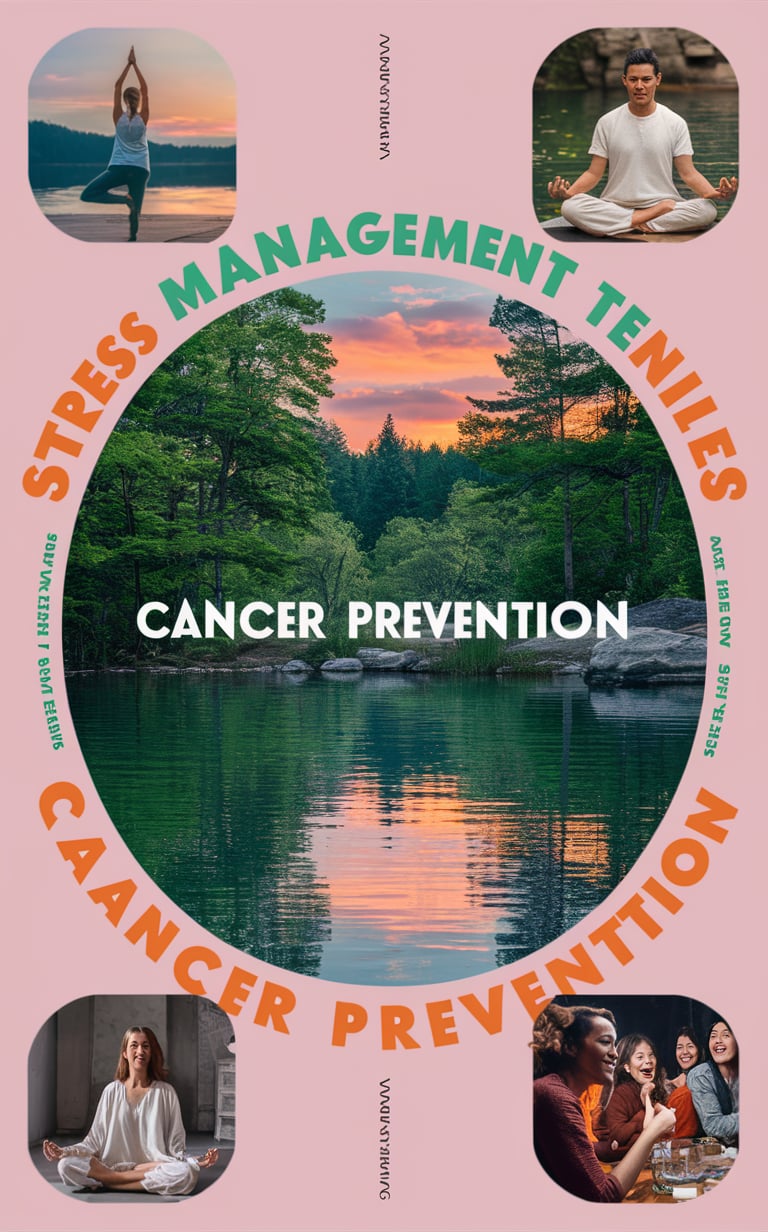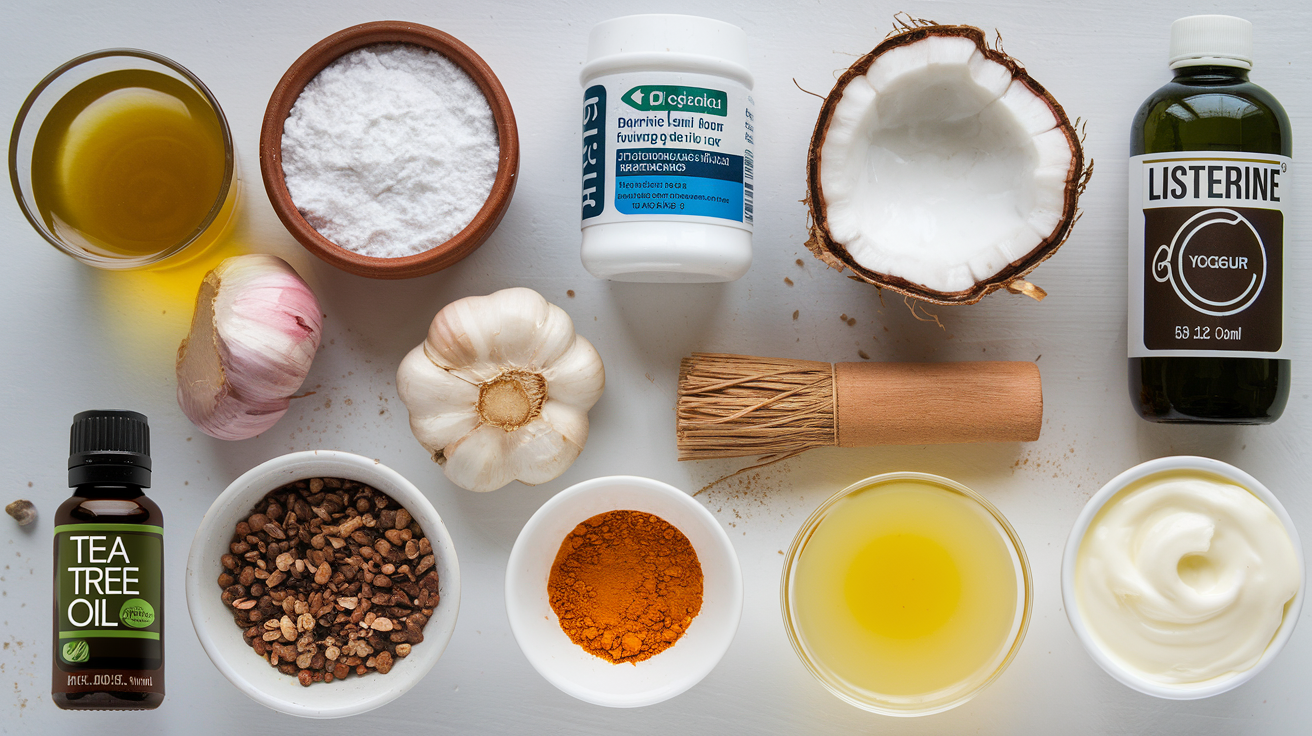In today’s world, stress has become a pervasive issue, affecting people from all walks of life. Chronic stress is not just a mental health issue; it has profound effects on physical health, including an increased risk of cancer. While stress is not a direct cause of cancer, it contributes to various risk factors, such as weakened immunity and inflammation, which can promote cancer development and progression. This comprehensive guide delves into stress management techniques that are essential for cancer prevention, providing practical strategies and insights for maintaining a balanced and healthy life.
Understanding Stress: What It Is and How It Affects the Body
What is Stress?
Stress is the body’s natural response to perceived threats or challenges, triggering a cascade of physiological and psychological reactions. This “fight or flight” response is designed to help us cope with immediate dangers but becomes harmful when it is prolonged or chronic.
Types of Stress
- Acute Stress: Short-term stress that arises from specific events or situations. It is generally manageable and often resolved once the situation is over.
- Chronic Stress: Long-term stress resulting from ongoing situations, such as work pressure, financial difficulties, or health issues. Chronic stress is more harmful and can lead to significant health problems.
Physiological Impact of Chronic Stress
Chronic stress affects various systems in the body, including the nervous, endocrine, and immune systems. It leads to the release of stress hormones like cortisol and adrenaline, which can suppress immune function, increase inflammation, and affect cellular repair mechanisms. These changes create an environment that may support cancer development and progression.
The Connection Between Stress and Cancer
The Role of Cortisol
Cortisol, a hormone released in response to stress, plays a crucial role in regulating various bodily functions, including metabolism, immune response, and inflammation. Chronic elevation of cortisol levels can suppress the immune system, reduce the effectiveness of natural killer cells, and promote inflammation, all of which are linked to increased cancer risk.
Inflammation and Cancer
Inflammation is the body’s natural response to injury or infection, but chronic inflammation can lead to cellular damage and mutation, creating an environment conducive to cancer growth. Stress-induced inflammation is particularly concerning as it can occur throughout the body, affecting various tissues and organs.
Immune Suppression
A robust immune system is essential for identifying and destroying cancerous cells. Chronic stress can weaken immune function, reducing the body’s ability to fight off cancerous changes and increasing the risk of cancer development.

Identifying and Understanding Your Stressors
Common Sources of Stress
- Work-Related Stress: Job demands, long hours, and lack of control over work situations.
- Financial Stress: Concerns about money, debt, and financial stability.
- Health-Related Stress: Dealing with chronic illness, injuries, or health conditions.
- Personal and Relationship Stress: Family issues, relationship problems, and social pressures.
Recognizing the Signs of Stress
Physical symptoms of stress can include headaches, muscle tension, fatigue, and digestive issues. Emotional symptoms may include anxiety, irritability, and depression. Behavioral symptoms often involve changes in sleep patterns, appetite, and substance use.
Effective Stress Management Techniques
1. Mindfulness and Meditation
Mindfulness involves staying present and fully engaging with the current moment without judgment. Meditation is a practice that can enhance mindfulness by helping individuals focus and quiet the mind. Techniques like deep breathing, guided imagery, and body scans are effective in reducing stress.
Benefits of Mindfulness and Meditation: – Reduces cortisol levels – Enhances emotional regulation – Improves concentration and focus – Promotes overall well-being
2. Physical Activity and Exercise
Regular physical activity is a proven stress reliever. Exercise increases endorphins, which are natural mood lifters. It also helps regulate cortisol levels and improves overall physical health, which is critical for cancer prevention.
Types of Exercise: – Aerobic Exercise: Activities like walking, running, and cycling improve cardiovascular health. – Strength Training: Helps in maintaining muscle mass and bone density. – Flexibility Exercises: Yoga and stretching improve flexibility and reduce muscle tension.
3. Healthy Diet and Nutrition
A balanced diet plays a crucial role in managing stress and maintaining overall health. Certain nutrients, like omega-3 fatty acids, antioxidants, and vitamins, are particularly beneficial in combating stress and reducing inflammation.
Stress-Reducing Foods: – Omega-3 Rich Foods: Salmon, walnuts, and flaxseeds help reduce inflammation. – Antioxidant-Rich Foods: Berries, leafy greens, and nuts protect against cellular damage. – Magnesium-Rich Foods: Spinach, almonds, and bananas support nerve and muscle function.
4. Adequate Sleep
Quality sleep is essential for stress management and overall health. Sleep deprivation can exacerbate stress, reduce cognitive function, and weaken the immune system. Establishing a consistent sleep schedule and creating a restful environment are key to improving sleep quality.
Tips for Better Sleep: – Stick to a regular sleep schedule. – Create a comfortable sleep environment. – Limit exposure to screens before bedtime. – Avoid caffeine and heavy meals in the evening.
5. Social Support and Connection
Strong social connections are vital for emotional well-being and stress management. Supportive relationships provide a buffer against stress and can improve resilience.
Building Social Support: – Stay connected with family and friends. – Join support groups or community activities. – Communicate openly about your feelings and challenges.
6. Relaxation Techniques
Relaxation techniques such as deep breathing, progressive muscle relaxation, and aromatherapy can help reduce stress levels and promote relaxation.
Popular Relaxation Techniques: – Deep Breathing: Focused breathing exercises that help calm the nervous system. – Progressive Muscle Relaxation: Systematically tensing and relaxing different muscle groups. – Aromatherapy: Using essential oils like lavender or chamomile to induce relaxation.
7. Cognitive Behavioral Therapy (CBT)
CBT is a structured, goal-oriented psychotherapy that helps individuals identify and change negative thought patterns and behaviors. It is highly effective in managing stress, anxiety, and depression.
CBT Techniques: – Identifying negative thought patterns – Challenging irrational beliefs – Developing healthier coping strategies
8. Time Management and Organization
Poor time management can be a significant source of stress. Learning to prioritize tasks, set realistic goals, and delegate responsibilities can help reduce stress and increase productivity.
Time Management Tips: – Use planners or digital calendars to organize tasks. – Break tasks into manageable steps. – Set realistic deadlines and avoid overcommitting.
9. Engaging in Hobbies and Creative Activities
Pursuing hobbies and creative activities can provide a much-needed break from daily stressors. Activities like painting, writing, gardening, or playing music can be therapeutic and foster a sense of accomplishment.
Benefits of Hobbies: – Provides a mental break – Encourages creative expression – Enhances mood and relaxation
10. Seeking Professional Help
Sometimes, stress can be overwhelming and difficult to manage alone. Seeking help from a mental health professional can provide additional support and resources for managing stress.

When to Seek Help: – Persistent feelings of anxiety or depression – Difficulty functioning in daily life – Inability to manage stress despite self-help efforts
Practical Implementation of Stress Management Techniques
Creating a Personalized Stress Management Plan
- Assess Your Stress Levels: Identify the main sources of stress in your life and how they affect you.
- Set Realistic Goals: Define clear, achievable goals for reducing stress.
- Choose Appropriate Techniques: Select stress management techniques that suit your lifestyle and preferences.
- Implement and Monitor Progress: Regularly practice these techniques and monitor their effectiveness.
- Adjust as Needed: Be flexible and willing to adjust your plan as needed.
Integrating Stress Management into Daily Life
- Routine and Consistency: Incorporate stress management practices into your daily routine.
- Mindful Living: Practice mindfulness throughout the day to stay grounded and present.
- Healthy Lifestyle Choices: Maintain a balanced diet, exercise regularly, and get enough sleep.
- Build a Support System: Surround yourself with supportive people who encourage positive changes.
- Continuous Learning and Adaptation: Stay informed about new stress management strategies and be open to trying new approaches.
People Also Ask (PAA)
- How does stress contribute to cancer risk?
- Chronic stress can negatively impact the immune system, making it less efficient at detecting and fighting cancer cells. It can also lead to behaviors such as smoking, overeating, or drinking, which are risk factors for cancer. Additionally, stress hormones like cortisol can promote inflammation and cellular changes that may lead to cancer.
- Check out for the comprehensive guide
- What are some effective stress management techniques for cancer prevention?
- Techniques include mindfulness meditation, regular physical exercise, proper sleep, balanced nutrition, cognitive-behavioral therapy (CBT), social support, and engaging in hobbies. It’s important to find a combination that works best for the individual, considering their lifestyle and preferences.
- Can reducing stress help in cancer treatment and recovery?
- Yes, managing stress can improve quality of life, enhance the immune system’s function, and potentially reduce the progression of cancer. It also helps in better adherence to treatment regimens and improves overall well-being, which is crucial during recovery.
- How does physical activity help in managing stress related to cancer?
- Physical activity reduces levels of stress hormones like adrenaline and cortisol and stimulates the production of endorphins, chemicals in the brain that act as natural painkillers and mood elevators. Exercise can also improve sleep, reduce fatigue, and boost self-esteem, all of which contribute to better stress management.
- What role does diet play in stress management and cancer prevention?
- A balanced diet rich in fruits, vegetables, whole grains, and lean proteins can improve mood and energy levels, helping to manage stress. Certain nutrients, such as omega-3 fatty acids, antioxidants, and vitamins, have been linked to lower stress levels and may have protective effects against cancer.
- Are there specific foods that help reduce stress and support cancer prevention?
- Yes, foods rich in antioxidants, such as berries, dark leafy greens, and nuts, can help combat oxidative stress and inflammation, which are linked to cancer development. Omega-3 fatty acids found in fish, flaxseeds, and walnuts can improve brain function and reduce stress. Additionally, foods high in vitamin C, such as citrus fruits, and magnesium, such as bananas and avocados, can help lower stress hormone levels.
- How does sleep impact stress and cancer risk?
- Adequate sleep is crucial for stress management and overall health. Poor sleep can increase stress levels and weaken the immune system, making it harder for the body to repair and defend itself against diseases, including cancer. Consistent, quality sleep helps regulate hormones, reduce inflammation, and improve mental clarity and mood.
- What role does mindfulness meditation play in stress reduction for cancer patients?
- Mindfulness meditation helps individuals focus on the present moment, reducing anxiety and stress. For cancer patients, this practice can improve emotional well-being, reduce symptoms of depression, and enhance quality of life. Studies suggest that regular mindfulness practice can lead to physiological changes that may support immune function and reduce inflammation.
- Can stress management techniques prevent the recurrence of cancer?
- While no method can guarantee the prevention of cancer recurrence, effective stress management can contribute to overall health and well-being, potentially reducing factors that might influence cancer recurrence. By lowering stress, improving immune function, and promoting healthier lifestyle choices, individuals can create an environment less conducive to cancer development.
- How important is social support in managing stress for cancer prevention?
- Social support is a critical factor in managing stress and promoting health. Strong social connections can provide emotional support, reduce feelings of isolation, and improve adherence to healthy behaviors. Whether through family, friends, support groups, or counseling, a supportive network can significantly enhance one’s ability to cope with stress and maintain a positive outlook, which is beneficial for overall health and potentially reducing cancer risk.

Health Disclaimer
The information provided in this blog is for educational and informational purposes only and is not intended as medical advice. Always consult with a qualified healthcare professional before making any changes to your diet, exercise, or stress management practices, especially if you have a medical condition or are undergoing treatment for cancer. The content is not intended to diagnose, treat, cure, or prevent any disease. The use of any information provided in this blog is solely at your own risk.
Conclusion
In conclusion, managing stress is a crucial aspect of cancer prevention and overall health. Chronic stress can have profound impacts on both mental and physical well-being, contributing to an increased risk of developing cancer and other chronic illnesses. By adopting effective stress management techniques such as mindfulness, physical activity, adequate sleep, and maintaining a balanced diet, individuals can significantly reduce their stress levels and potentially lower their risk of cancer.
Moreover, it’s important to recognize the role of social support and professional guidance in managing stress. Whether through support groups, therapy, or counseling, seeking help can provide valuable tools and strategies to cope with stress more effectively. Remember that stress management is a personal journey, and what works for one person may not work for another. It’s essential to find the methods that resonate most with you and integrate them into your daily routine.
As we navigate the complexities of modern life, prioritizing our mental and physical health through effective stress management not only enhances our quality of life but also supports our body’s natural defenses against diseases, including cancer. Take the first step today by incorporating these strategies into your life, and consider consulting with healthcare professionals to tailor a plan that meets your specific needs and circumstances. Your health and well-being are worth the effort. Continuing from the previous conclusion:
Incorporating stress management techniques into daily life requires consistency and a proactive approach. Start by identifying stressors and assessing how they affect your mental and physical health. From there, experiment with different strategies—whether it’s yoga, meditation, spending time in nature, or simply setting aside time for hobbies and relaxation.
It’s also important to recognize the signs of chronic stress and seek professional help when needed. Mental health professionals can provide personalized strategies and therapies to help manage stress effectively. In addition, integrating regular medical check-ups can aid in early detection and management of any health issues, potentially preventing them from escalating into more serious conditions.
Remember, the journey to managing stress and promoting overall health is a lifelong process. It requires ongoing effort, self-awareness, and a willingness to adapt and try new methods. By prioritizing your well-being and making conscious lifestyle choices, you can not only reduce your cancer risk but also enhance your quality of life.
Ultimately, stress management is a key component of a holistic approach to health. By addressing both the mind and body, you can create a balanced and resilient foundation that supports long-term wellness. Take charge of your health today, and make stress management a priority—not just for cancer prevention but for a happier, healthier life.








